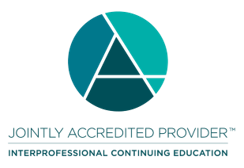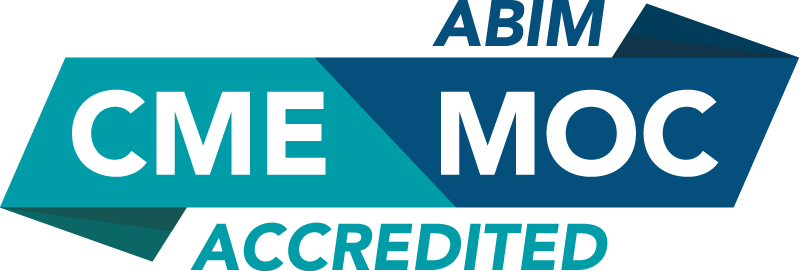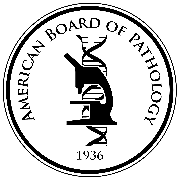NCCN 2021 Virtual Congress: Biomarkers in Solid Tumors
Individualizing cancer treatment based upon biomarker testing is a rapidly evolving area in oncology. Clinicians are challenged to remain current on what the different tests offer, the types of genetic alterations that can be detected, the technologies that can be used, the limitations of the techniques, and the factors to consider in determining the appropriate tests for their patients with solid tumors.
The NCCN 2021 Virtual Congress: Biomarkers in Solid Tumors will address the increasing use of biomarker testing in the management of patients with solid tumors, the factors affecting the selection of the appropriate tests, challenges of interpreting test results and communicating the results to patients, and new developments in biomarker testing. Case scenarios will be employed to assist clinicians in applying biomarker testing in the management of metastatic non-small cell lung cancer, metastatic breast cancer, melanoma, ovarian cancer, and colorectal cancer.
Target Audience
This educational program is designed to meet the educational needs of physicians, nurse practitioners, nurses, physician assistants, pharmacists, genetic counselors, and other health care professionals who manage patients with solid tumors.
Learning Objectives
Following this program, participants should be able to:
Overall Congress Objectives
- Apply the current standards of oncology care and the NCCN Clinical Practice Guidelines in Oncology (NCCN Guidelines®) to appropriately integrate biomarker testing to optimize the care of patients with solid tumors.
- Select the appropriate biomarker tests to evaluate and optimally manage patients with solid tumors.
- Analyze and interpret the results of biomarker tests to select appropriate treatments for patients.
- Communicate the results of biomarker tests with patients to inform their care.
- Communicate with members of the interprofessional oncology care team about the use of biomarker testing in the management of patients with solid tumors.
General Principles of Biomarker Testing: When Should Broad Genomic Profiling be Performed and What Do Different Tests Offer?
- Describe different types of genomic testing.
- Review the utility, benefits, and limitations of tissue vs. liquid biopsy testing.
- Describe the types of tests that can detect fusion genes.
- Identify the factors that should be considered when ordering genomic testing.
General Principles of Test Interpretation: What Results are Actionable and How to Advise Patients on Results?
- Describe the benefits and limitations of companion diagnostic and alternative tests.
- Review ways to decipher laboratory reports and understand pitfalls and limitations of genomic test results.
- Describe how the tiered reporting systems can be used to prioritize results.
- Name web resources that can be used to obtain information about complex variants.
Clinical Scenario #1: Applying Biomarkers in Metastatic Non-Small Cell Lung Cancer
- Describe the different molecular and immune biomarker tests that are recommended for eligible patients with metastatic non-small cell lung cancer.
- Compare and contrast biomarker testing using tissue and plasma ctDNA samples.
- Review treatment options for patients with KRAS mutation-positive metastatic NSCLC.
Clinical Scenario #2: Applying Biomarkers in Metastatic Breast Cancer
- List the available biomarkers for breast cancer and when testing for specific biomarkers should be performed.
- Compare and contrast the various techniques available for these biomarker tests.
- Integrate biomarker testing and test results into clinical practice for treatment of patients with breast cancer.
Clinical Scenario #3: Applying Biomarkers in Melanoma
- Review the biomarker tests that are recommended for melanoma and when these tests should be done.
- Compare and contrast the techniques available for performing these biomarker tests.
- Incorporate biomarker testing and test results into clinical practice for the treatment of patients with melanoma as appropriate.
Clinical Scenario #4: Evolving Applications of PARP Inhibitors in Various Cancers
- Describe the tests (germline vs. somatic) that are recommended prior to selecting PARPi therapy and when these tests should be done.
- Compare and contrast the techniques available for these tests.
- Integrate biomarker testing, test results, and use of PARPi therapy in treating patients with various cancers as appropriate.
Clinical Scenario #5: Applying Biomarkers in Colorectal Cancer
- Review the biomarker tests that are recommended for colorectal cancer and when these tests should be done.
- Compare and contrast the techniques available for these biomarker tests.
- Incorporate biomarker testing and test results into clinical practice for treatment of patients with colorectal cancer as appropriate.
What’s on the Horizon?
- Explain what is meant by tumor heterogeneity.
- Review an example of a novel technique for biomarker detection.
- Review advanced application of single cell analysis and liquid biopsy.
NCCN Continuing Education Disclosure Policy
It is the policy of NCCN that all planners, faculty, moderators, authors, reviewers and anyone involved in the planning and delivery of NCCN continuing education activities are expected to disclose ALL financial relationships they have had in the past 24 months with ineligible companies. The ACCME Standards for Integrity and Independence require that individuals who refuse to provide this information will be disqualified from involvement in the planning and implementation of accredited continuing education presented by NCCN. NCCN identifies, mitigates, and discloses to learners all relevant financial relationships.
In addition, all content has been reviewed to ensure education promotes safe, effective patient care and does not promote the products or services of an ineligible company. Content, including any presentation of therapeutic options, is fair, balanced, evidence-based, scientifically accurate, and free of commercial bias and marketing.
Definitions
Ineligible Company: An ineligible company is any entity whose primary business is producing, marketing, selling, re-selling, or distributing healthcare products used by or on patients.
Relevant Financial Relationships: Financial relationships of any dollar amount occurring within the past 24 months are defined as relevant if the educational content an individual can control is related to the business lines or products of an ineligible company. There is no minimum financial threshold. We ask for disclosure of ALL financial relationships with ineligible companies, regardless of the amount and regardless of the potential relevance of each relationship to the education.
Faculty Disclaimers
All faculty for this continuing education activity are competent in the subject matter and qualified by experience, training, and/or preparation for the tasks and methods of delivery.
Faculty presentations may include discussion of off-label use. Faculty will disclose that the use in question is not currently approved by the FDA per the product labeling or marketing.
Faculty Disclosures
Congress Co-Chairs
The faculty listed below have the following relevant financial relationships with ineligible companies to disclose. All of the relevant financial relationships listed for these individuals have been mitigated.
Kimberly H. Allison, MD
Devicor Medical Products, Inc.: Consulting Fee
Jennifer J.D. Morrissette, PhD
Bayer HealthCare: Consulting Fee
Novartis Pharmaceuticals Corporation: Consulting Fee
Presenting Faculty
The faculty listed below have no relevant financial relationships with ineligible companies to disclose.
Donald A. Baldwin, PhD
Terri L. Blase, MS, CGC
Jeffrey Gagan, MD, PhD
The faculty listed below have the following relevant financial relationships with ineligible companies to disclose. All of the relevant financial relationships listed for these individuals have been mitigated.
Dara L. Aisner, MD, PhD
Blueprint Medicines: Consulting Fee
Genentech, Inc.: Grant/Research Support
Loxo Oncology: Consulting Fee
sanofi-aventis U.S.: Consulting Fee
Takeda Pharmaceuticals North America, Inc.: Consulting Fee
Dana Farengo-Clark, MS, LCGC
AstraZeneca Pharmaceuticals LP: Product/Speakers Bureau
Susan M. Domchek, MD
AstraZeneca Pharmaceuticals LP: Honoraria
Jonathan E. Dowell, MD
AstraZeneca Pharmaceuticals LP: Consulting Fee
BeiGene: Consulting Fee
Genentech, Inc.: Consulting Fee
Janssen Pharmaceutica Products, LP: Consulting Fee
Kelsey A. Klute, MD
Agios, Inc.: Grant/Research Support
AstraZeneca Pharmaceuticals LP: Grant/Research Support
Daiichi-Sankyo Co.: Consulting Fee
FibroGen, Inc.: Grant/Research Support
Incyte Corporation: Grant/Research Support
Pfizer Inc.: Consulting Fee
Anthony J. Olszanski, MD, RPh
Bristol-Myers Squibb Company: Scientific Advisor
Eisai Inc.: Scientific Advisor
Merck & Co., Inc.: Scientific Advisor
Aparna R. Parikh, MD, MS
Bristol-Myers Squibb Company: Grant/Research Support
C2i Genomics: Equity Interest/Stock Options
Checkmate Pharmaceuticals: Consulting Fee
Daiichi-Sankyo Co.: Grant/Research Support
Eli Lilly and Company: Consulting Fee
Genentech, Inc.: Grant/Research Support
Inivata Ltd.: Consulting Fee
Mirati Therapeutics Inc.: Grant/Research Support
Novartis Pharmaceuticals Corporation: Grant/Research Support
Pfizer Inc.: Consulting Fee
Plexxikon: Grant/Research Support
PMV Pharmaceuticals, Inc.: Grant/Research Support
PureTech Health: Grant/Research Support
Roche Pharmaceuticals: Scientific Advisor
Takeda Pharmaceuticals North America, Inc.: Grant/Research Support
Benjamin J. Swanson, MD, PhD
Cogen Bioscience, Inc.: Equity Interest/Stock Options; Scientific Advisor
Melinda L. Telli, MD
AbbVie, Inc.: Grant/Research Support; Scientific Advisor
AstraZeneca Pharmaceuticals LP: Scientific Advisor
Blueprint Medicines: Scientific Advisor
G1 Therapeutics: Consulting Fee
Guardant Health: Scientific Advisor
Genentech, Inc.: Grant/Research Support; Scientific Advisor
Immunomedics, Inc.: Scientific Advisor
Lilly Oncology: Scientific Advisor
Merck & Co., Inc.: Grant/Research Support; Scientific Advisor
Natera Inc.: Scientific Advisor
Novartis Pharmaceuticals Corporation: Scientific Advisor
OncoSec Medical: Grant/Research Support; Scientific Advisor
Pfizer Inc.: Grant/Research Support; Scientific Advisor
sanofi-aventis U.S.: Scientific Advisor
David T. Ting, MD
Advanced Cell Diagnostics, Inc. (Bio-Techne): Grant/Research Support
Foundation Medicine, Inc.: Consulting Fee
Nanostring Technologies: Honoraria
PanTher Therapeutics: Equity Interest/Stock Options; Officer, Director or Any Other Fiduciary Role
Pfizer Inc.: Consulting Fee
PureTech Health: Grant/Research Support
Ribon Therapeutics: Grant/Research Support
ROME Therapeutics: Consulting Fee; Equity Interest/Stock Options; Intellectual Property Rights; Royalty Income; Scientific Advisor
TellBio, Inc.: Equity Interest/Stock Options
NCCN Staff Disclosures
None of the planners for this educational activity have relevant financial relationships to disclose with ineligible companies whose primary business is producing, marketing, selling, re-selling, or distributing healthcare products used by or on patients.

In support of improving patient care, National Comprehensive Cancer Network (NCCN) is jointly accredited by the Accreditation Council for Continuing Medical Education (ACCME), the Accreditation Council for Pharmacy Education (ACPE), and the American Nurses Credentialing Center (ANCC), to provide continuing education for the healthcare team.
Physicians
NCCN designates this live activity for a maximum of 6 AMA PRA Category 1 Credits™. Physicians should claim only the credit commensurate with the extent of their participation in the activity.
Nurses
NCCN designates this educational activity for a maximum of 6 contact hours.
Pharmacists
NCCN designates this knowledge-based continuing education activity for 6 contact hours (0.6 CEUs) of continuing education credit. UAN: JA4008196-0000-21-101-L01-P
Physician Assistants
NCCN has been authorized by the American Academy of PAs (AAPA) to award AAPA Category 1 CME credit for activities planned in accordance with AAPA CME Criteria. This activity is designated for 6 AAPA Category 1 CME credits. PAs should only claim credit commensurate with the extent of their participation.
American Board of Internal Medicine Maintenance of Certification (MOC)

Successful completion of this CME activity, which includes participation in the evaluation component, enables the participant to earn up to 6 medical knowledge MOC points in the American Board of Internal Medicine’s (ABIM) Maintenance of Certification (MOC) program. Participants will earn MOC points equivalent to the amount of CME credits claimed for the activity. It is the CME activity provider’s responsibility to submit participant completion information to ACCME for the purpose of granting ABIM MOC credit.
Aggregated participant data will be shared with the commercial supporters of this activity.
American Board of Pathology Maintenance of Certification (MOC)

This activity has been registered to offer credit in the American Board of Pathology’s (ABPath) Maintenance of Certification program. Participants may earn up to 6 Lifelong Learning (Part II) credits.
Aggregated participant data will be shared with the commercial supporters of this activity.
American Board of Medical Specialties Maintenance of Certification (MOC)
Through the American Board of Medical Specialties (“ABMS”) ongoing commitment to increase access to practice relevant Continuing Certification Activities through the ABMS Continuing Certification Directory, the NCCN 2021 Virtual Congress: Biomarkers in Solid Tumors has met the requirements as a MOC Part II CME Activity (apply toward general CME requirement) for the following ABMS Member Boards:
MOC Part II CME Activity
Anesthesiology
Radiology
Urology
Genetic Counselor CEUs
The National Society of Genetic Counselors (NSGC) has authorized National Comprehensive Cancer Network to offer up to 0.6 CEUs or 6 Category 1 contact hours for the activity NCCN 2021 Virtual Congress: Biomarkers in Solid Tumors. The American Board of Genetic Counseling (ABGC) will accept CEUs earned at this program for the purposes of genetic counselor certification and recertification.
Available Credit
- 6.00 AAPA Category 1 CME credit
- 6.00 ACPE contact hours
- 6.00 AMA PRA Category 1 Credit™
- 6.00 ANCC contact hours
- 6.00 Participation
If you attended the live program, click the Take Course button to start the credit claiming process.
You must be logged in with the same email address used for program registration.
Required Hardware/software
To complete this activity, users will need:
- A device with an Internet connection and sound playback capability
- One of the two latest versions of Google Chrome, Mozilla Firefox, or Safari
- Internet Explorer is no longer supported
- Adobe Reader or other PDF reader software for certificate viewing/printing

 Facebook
Facebook X
X LinkedIn
LinkedIn Forward
Forward